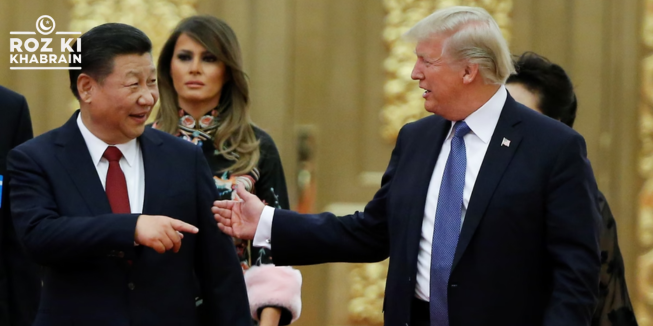Chinese President Xi Jinping met with outgoing US President Joe Biden in Lima, Peru, on Saturday, reaffirming his readiness to cooperate with the incoming Trump administration. The two leaders discussed key issues such as cybersecurity, trade, Taiwan, and relations with Russia, underlining the importance of continued dialogue during the US leadership transition.
Biden met Xi at the hotel where the Chinese leader was staying, on the sidelines of the Asia-Pacific Economic Cooperation (APEC) summit. This marked their first conversation in seven months.
Xi expressed that China’s goal of maintaining a stable and healthy US-China relationship remains unchanged, despite the challenges between the two nations. He emphasized that China is prepared to work with the new US administration to foster communication, expand cooperation, and manage differences.
Biden acknowledged that while their discussions had not always aligned, they had been “frank” and “candid.”
This meeting took place just two months before President-elect Donald Trump assumes office. Trump has expressed plans to impose significant tariffs on Chinese goods, as part of his “America First” trade policies. China has opposed such measures and voiced concerns over Trump’s potential appointments of hawkish figures on China, including Senator Marco Rubio and Representative Mike Waltz.
While Biden has worked to ease tensions with China, recent issues such as a hack linked to China targeting US government and campaign communications have raised alarms in Washington. Additionally, Beijing’s increasing pressure on Taiwan and its support for Russia have added to the strain.
Taiwan President Lai Ching-te’s upcoming visit to the US, which may include stops in Hawaii and Guam, is expected to provoke China. The US is Taiwan’s most significant international ally despite the lack of formal diplomatic recognition. Taiwan’s government also invited Biden to visit in the near future.
The US also seeks China’s assistance with North Korea, which has strengthened ties with Russia and escalated military activity, particularly in the ongoing Ukraine war.
On the economic front, China’s economy faces challenges due to Biden’s trade policies, including plans to restrict US investment in Chinese AI, quantum computing, and semiconductors. These topics were central to the talks between the two leaders.
Xi warned that US-China relations could regress if the two countries treat each other as adversaries and engage in harmful competition. He stressed the importance of collaboration and seeking common ground.
US national security adviser Jake Sullivan noted that this transition period provides both opportunities and challenges for US-China relations. Biden’s goal during this period is to maintain stability and clarity.
Shen Dingli, a Shanghai-based international relations scholar, highlighted that China hopes to ease tensions during this transition phase, avoiding any disruptions before Trump formally takes office.
As the APEC summit progresses, Xi’s visit to Latin America is seen as a significant diplomatic maneuver, with a focus on trade agreements, infrastructure projects, and securing critical resources like metal ores and soybeans from the region. Meanwhile, concerns have risen in the US about China’s increasing influence in Latin America, particularly in terms of military and intelligence outposts. However, Chinese state-backed media has dismissed these accusations.
While the US remains committed to the region, Xi’s visit to Latin America is expected to be a strong diplomatic presence, overshadowing Biden’s own engagements with the region.




